Halfway Lake Provincial Park is located northwest of Sudbury on Highway 144. It is a 5113 hectare park that is on the southern edge of the boreal forest and it has some fantastic trails that have some outstanding features and landforms.
We decided to hike the Echo Pond Trail. This trail is 6 kilometres long and is moderately difficult. To get to the trail, you have to head to the Moose Ridge Trail head and follow the appropriate sign. There are actually three trails that start at this location, so please make sure you know which trail you want to be on and which symbol corresponds to that trail. Each trail is well marked and easy to follow.
The trails are well established and well maintained. We set out early and packed a lunch to take our time and allow Maya to go at her own pace. She had been getting stronger after each of the provincial parks and was exceeding our expectations regularly. We also made sure to rest her when necessary and any rainy day or extremely hot day was also a rest day.
Shortly after leaving the trail head we hiked past Raven Lake. The reflections off of this long, narrow lake were stunning, if only we didn’t hear the trucks on the highway just behind the lake, it would have been even more beautiful.
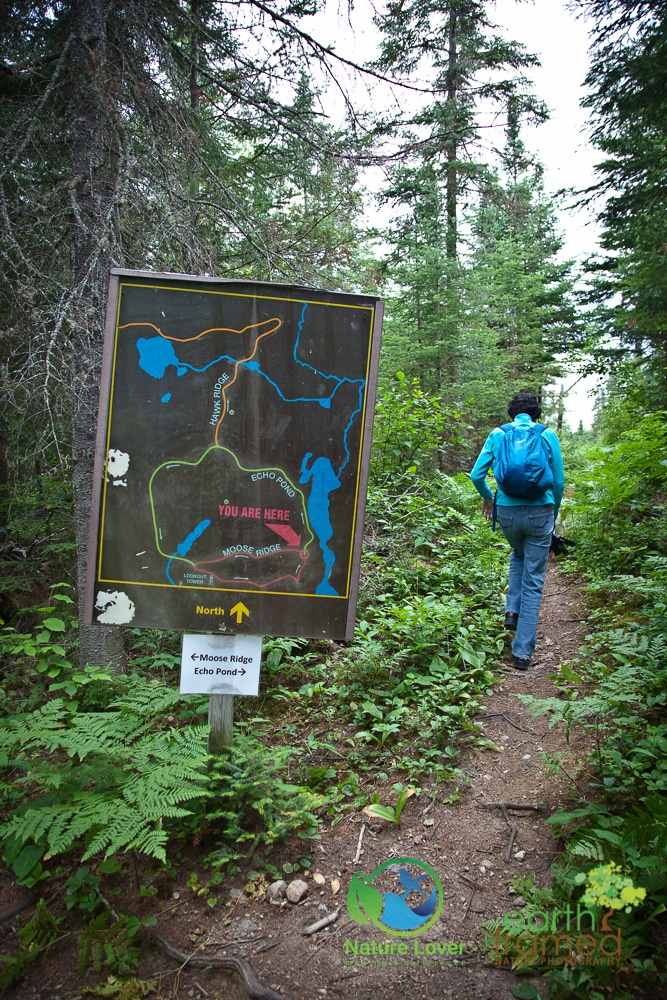 At junction points we came across these signs that clearly directed us along our selected path. If we had turned west we could have hiked the shorter Moose Ridge trail which is red on the map. We headed north and followed the yellow trail to stay on the Echo Pond path. I believe our trail was also designated with a heron as the symbol to follow. You saw the sign above.
At junction points we came across these signs that clearly directed us along our selected path. If we had turned west we could have hiked the shorter Moose Ridge trail which is red on the map. We headed north and followed the yellow trail to stay on the Echo Pond path. I believe our trail was also designated with a heron as the symbol to follow. You saw the sign above.
As we came around a bend in the trail we saw a family of Ruffed Grouse in the bushes. The chicks were on the opposite side of the trail so the parents made every attempt to either distract us or scare us.
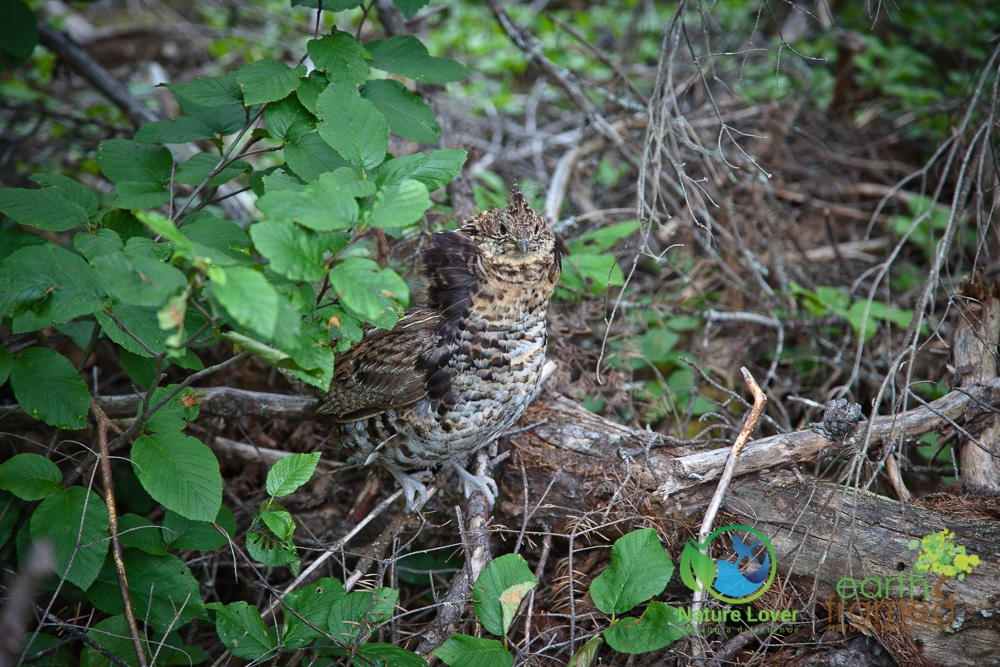 The male had extended its feathers on the sides of its neck and fanned its tail. I can’t remember whether it was drumming during its display or not. They were so close to the trail that we got a fantastic view of them.
The male had extended its feathers on the sides of its neck and fanned its tail. I can’t remember whether it was drumming during its display or not. They were so close to the trail that we got a fantastic view of them.
The trail was narrow in spots but made the path feel comforting and welcoming, if a path can make you feel something (which I think it can). It meandered through a green, luscious forest floor, with stands of coniferous trees, and sections of Canadian Shield.
Along the path we found these trail markers that let you know which trail you are on and how far you have hiked.
The trail went along cliff edges, up and over rock and around fallen trees. The landscape was rugged, beautiful and picturesque.
Along the way we saw evidence of birds at work. Young Yellow Bellied Sapsuckers made this lace-like design in the bark of a silver birch tree that lay decomposing on the ground.
Erratic boulders laid where glacial ice left them thousands of years ago.
Wild blueberries were seen throughout our hike, although most were not ripe enough to try. This fruit will feed many of the forest’s wildlife, from small rodents to bears.
At the highest point of the trail we came to this open area which was so completely different to all the landscapes we had walked through. I thought it was an alvar, but looking at the definitions, it would seem that it wasn’t. There were views of the landscape of the distance beaver pond.
The path led down hill through some boulder fields, scattered with blueberry bushes and ferns.
This Springtime Darner was resting on this fallen branch, soaking up the sunshine.
At the bottom of the rocky ridge we walked around the edge of a beaver pond that had several lodges and food piles on it
Check out this amazing view of the beaver dam that created the pond behind it! A beaver is considered to be a keystone species, which means that it is a species that has a disproportionately large effect on its environment relative to its abundance.
This Green Frog had a great view of the beaver pond, all alone on this erratic boulder that was situated on the edge of the pond.
Further along, as we neared the end of the trail, we climbed a tall observation tower to get this view of Raven Lake. Beside the tower tall pine and spruce trees gave us a chance to see some song birds.
Off in the distance we saw the effects of the 2007 forest fire. 590 hectares of land were burned due to a campfire that wasn’t properly extinguished.
We thoroughly enjoyed this trail but we did find that it was a bit too long and too rugged for Maya at times. As a reward for completely such a difficult hike we immediately took her for a nice cool dip at the park’s boat launch. Even I got my toes wet!
Sources:
“Halfway Lake Provincial Park Management Plan.” Ontario Ministry of Natural Resources, n.d. Web. 18 Oct. 2016.
Paine, R.T. (1995). “A Conversation on Refining the Concept of Keystone Species”. Conservation Biology. 9 (4): 962–964.


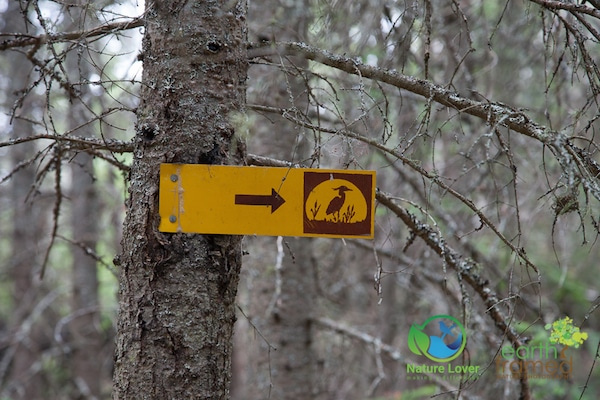
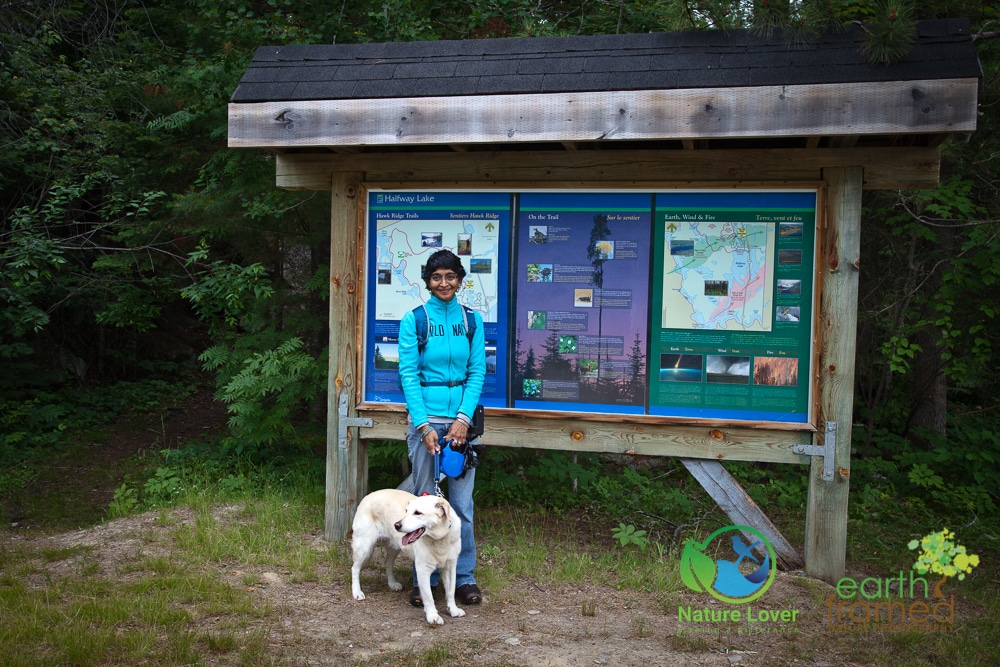
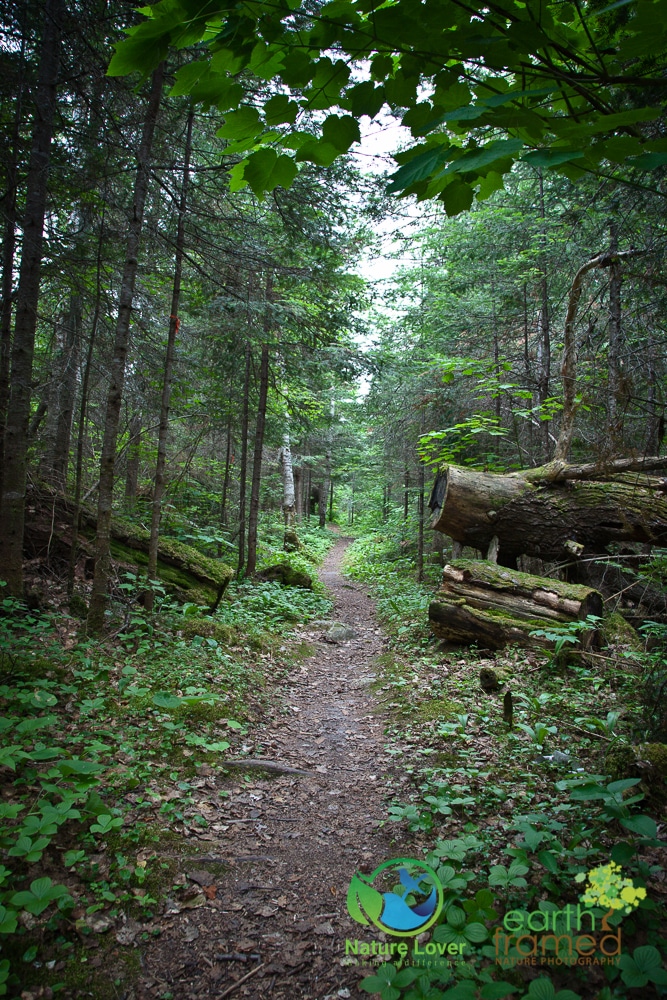
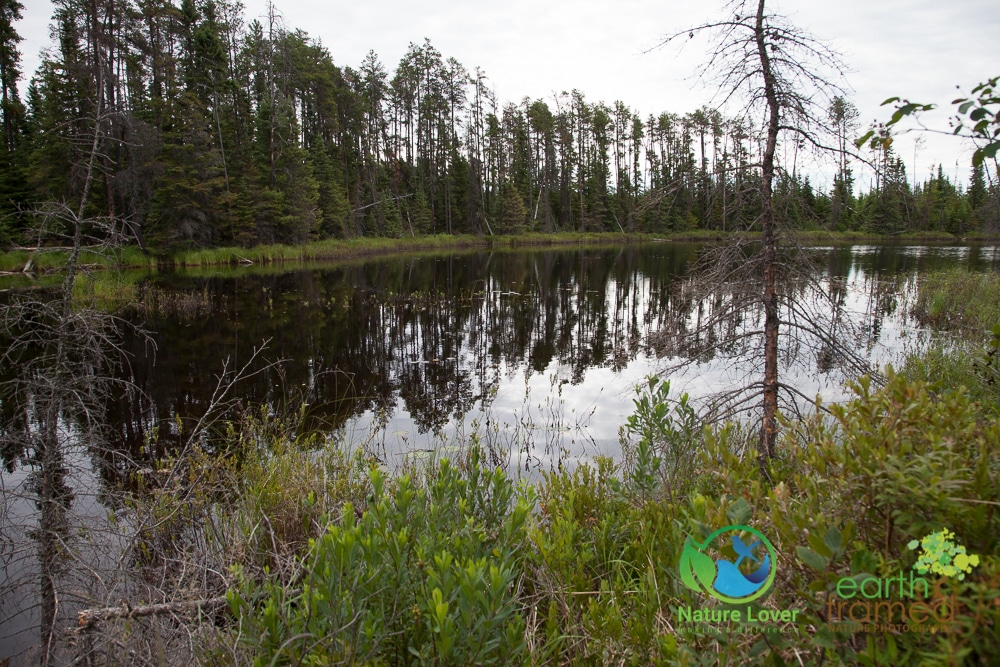
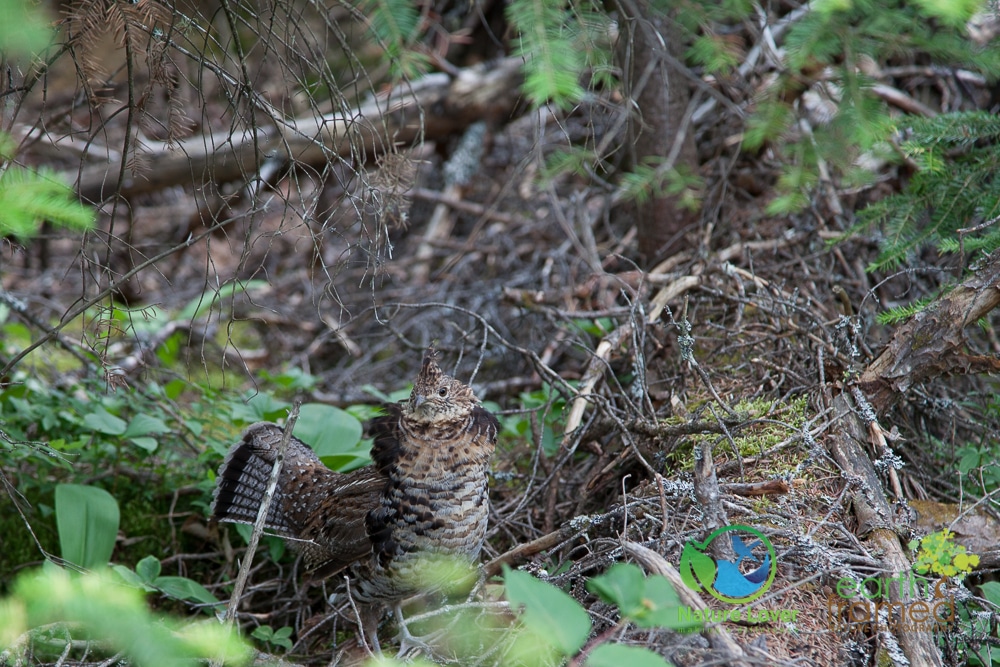
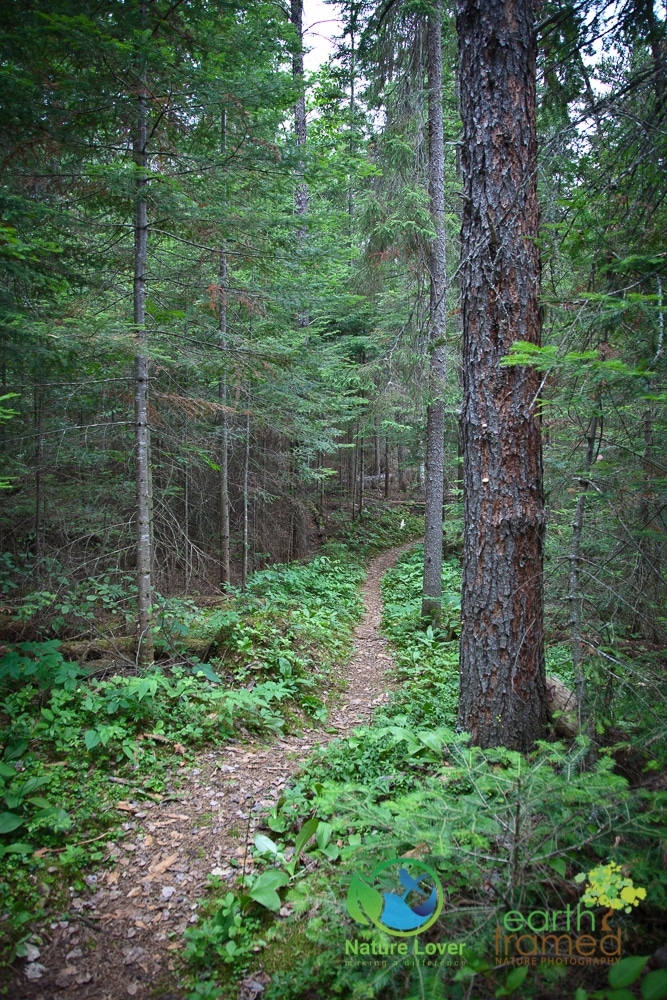
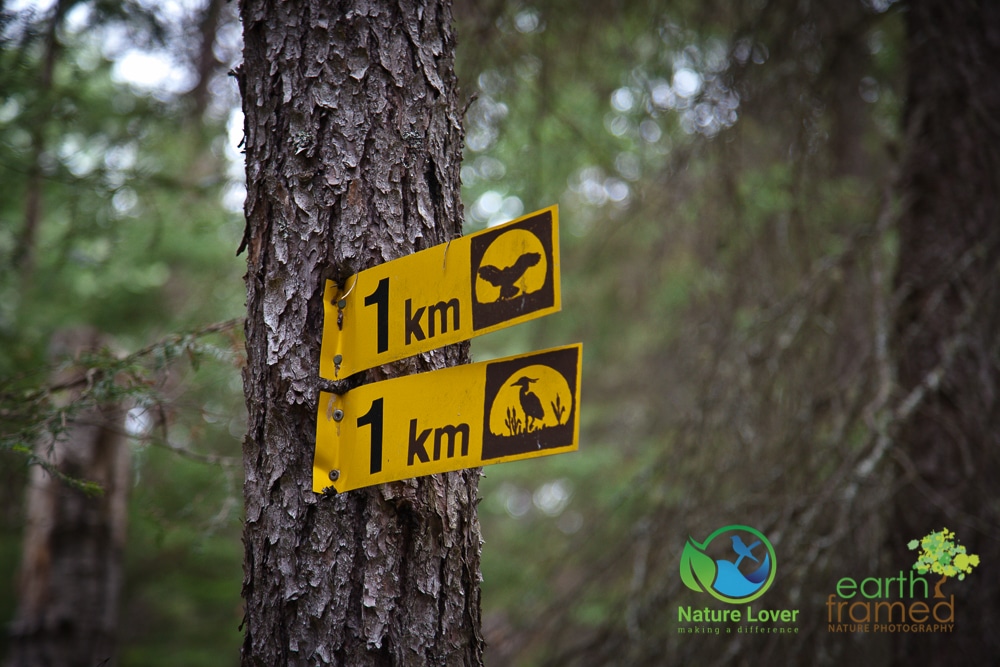
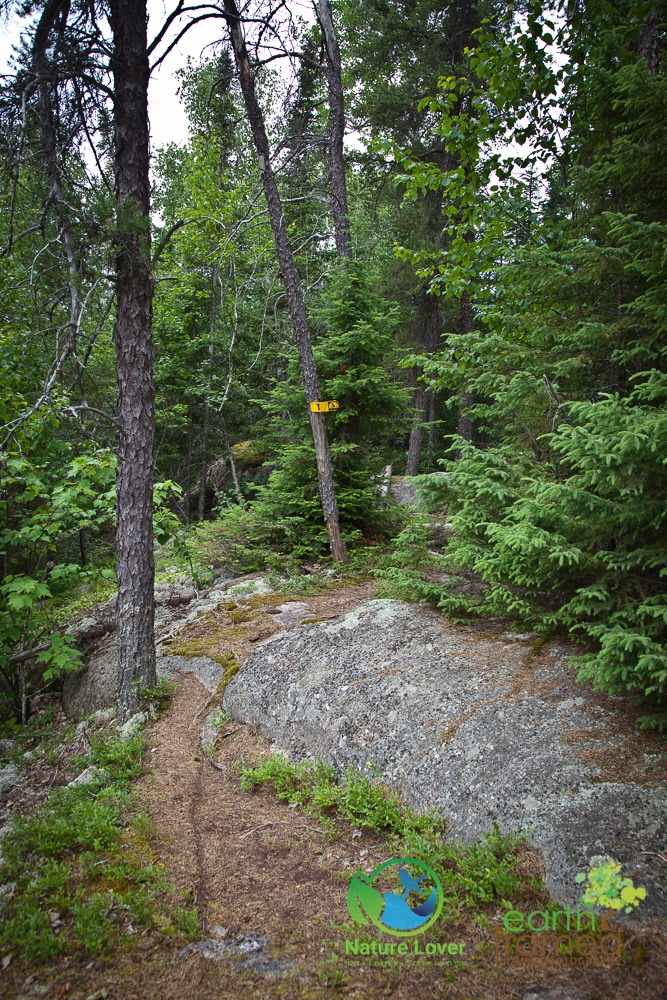
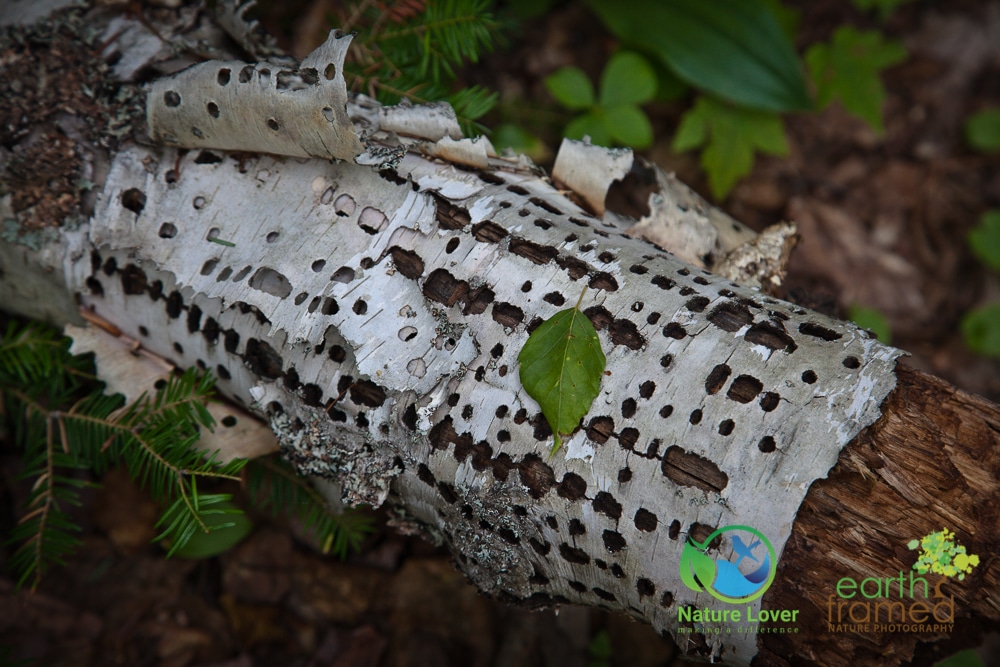
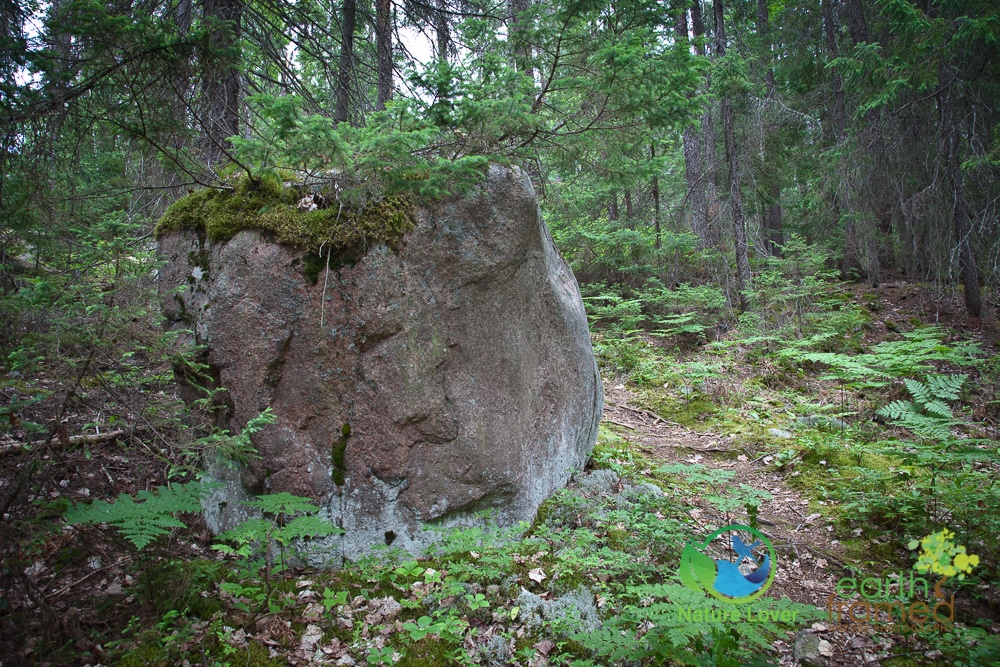
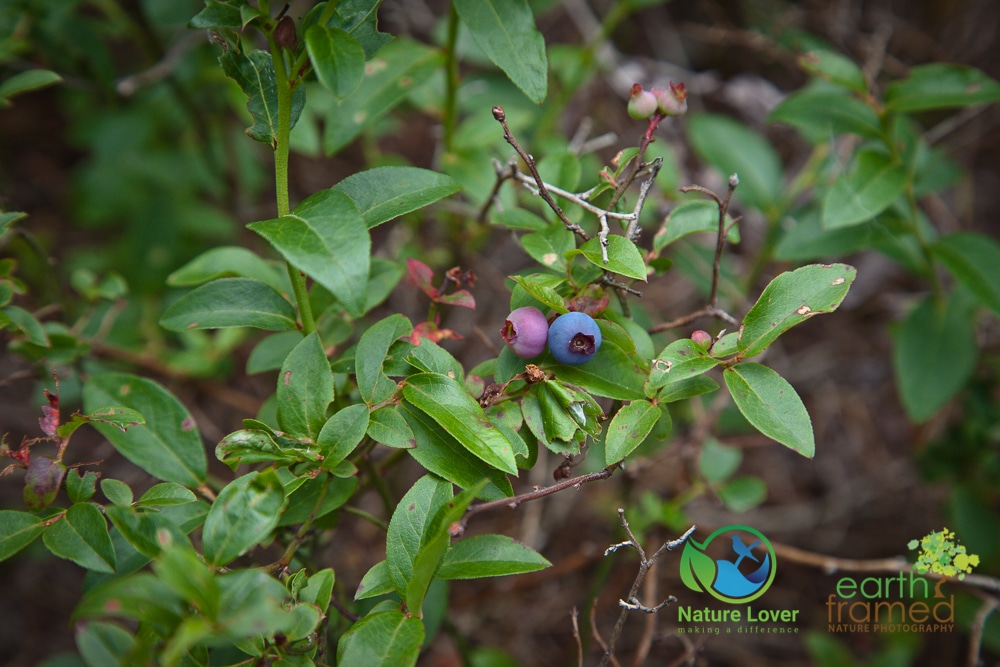
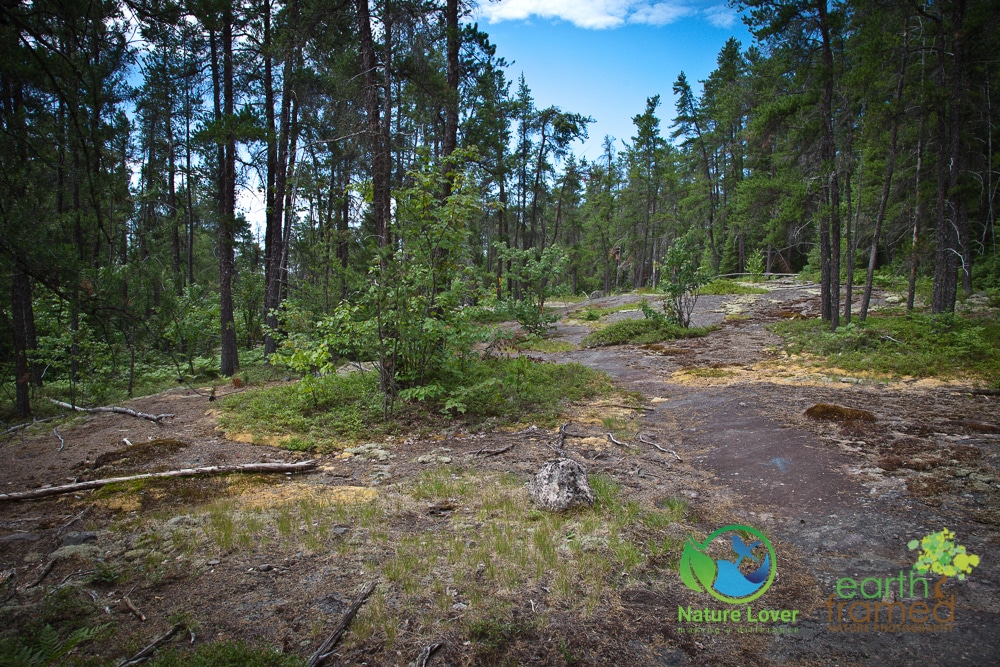
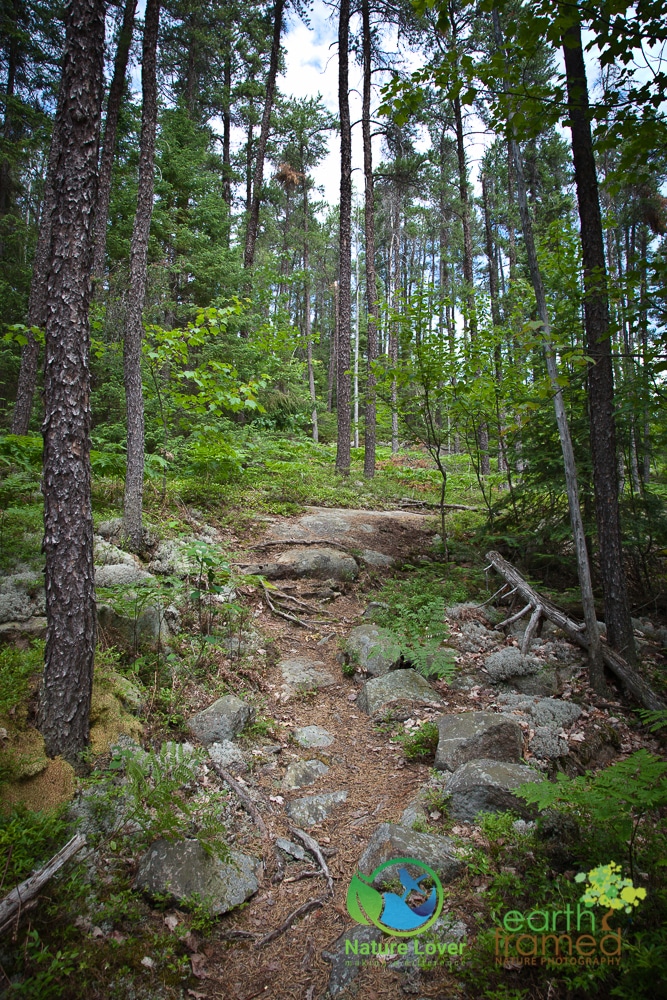
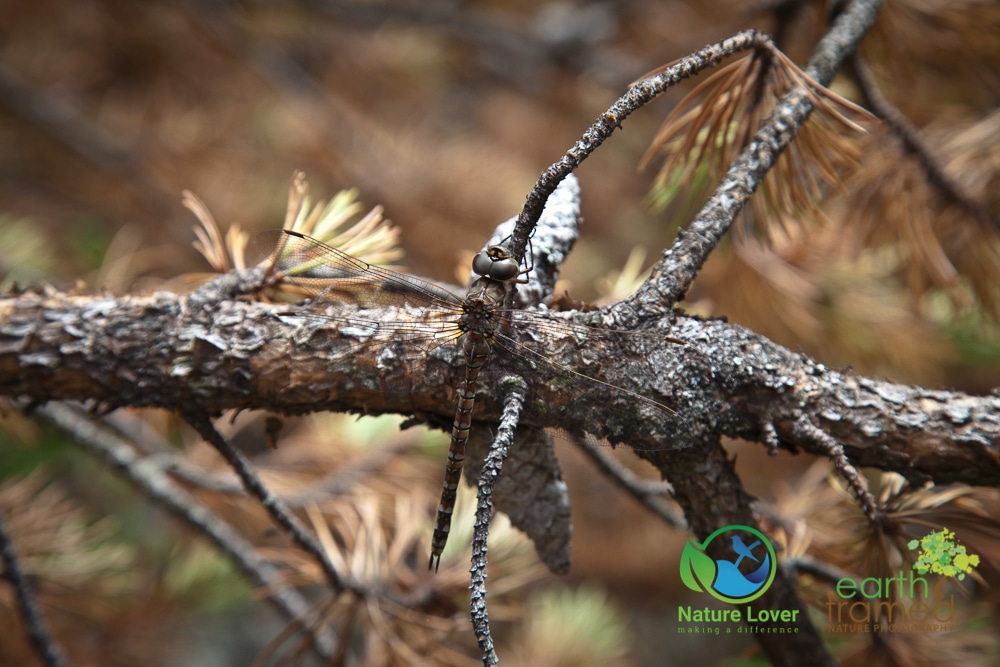
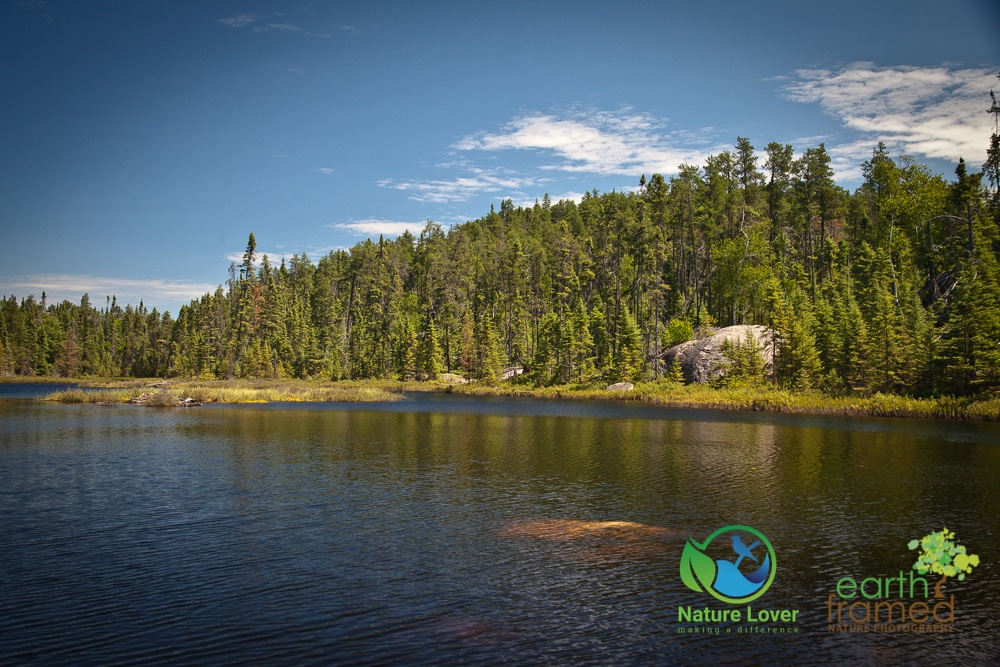
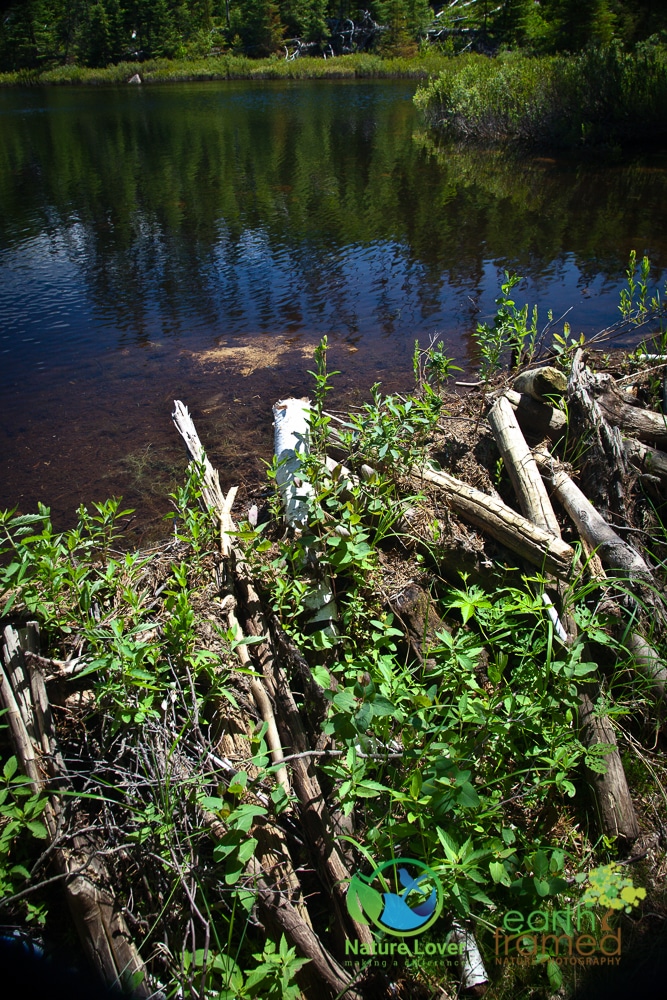
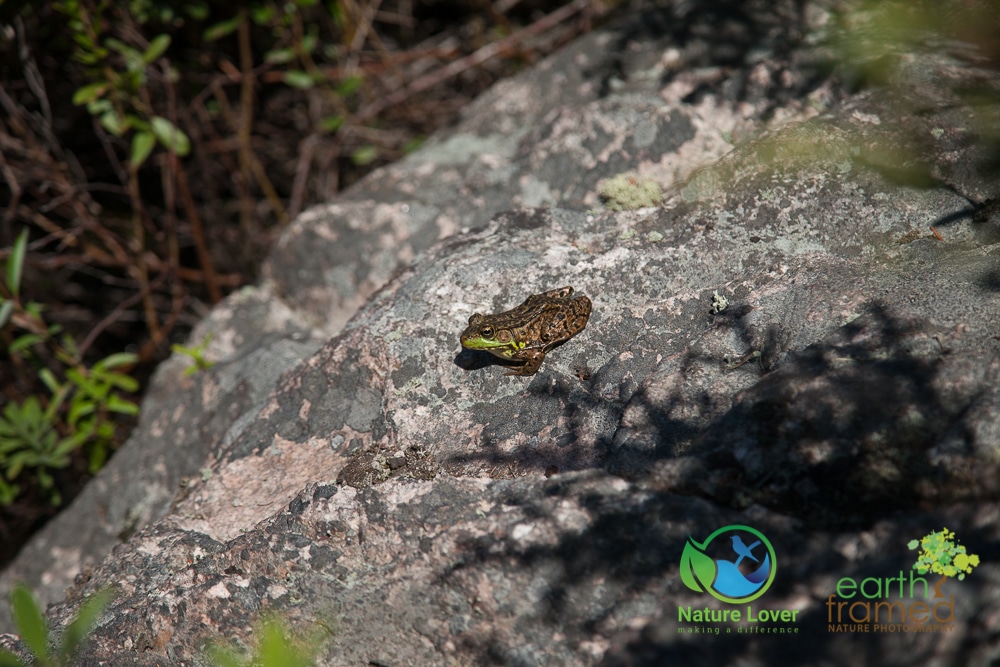
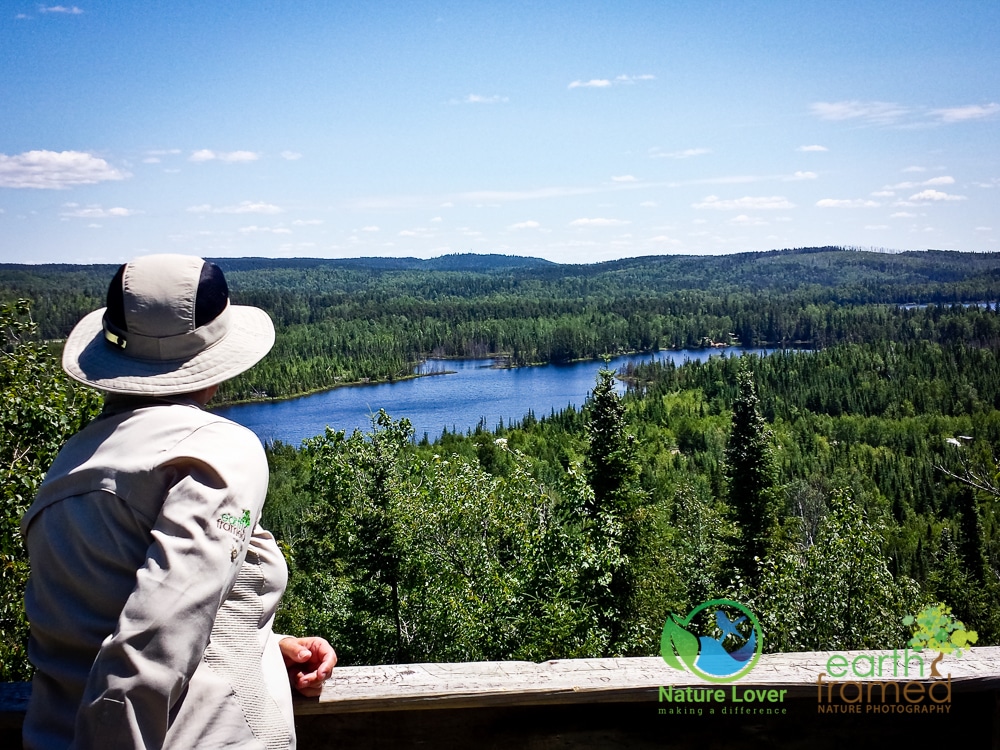
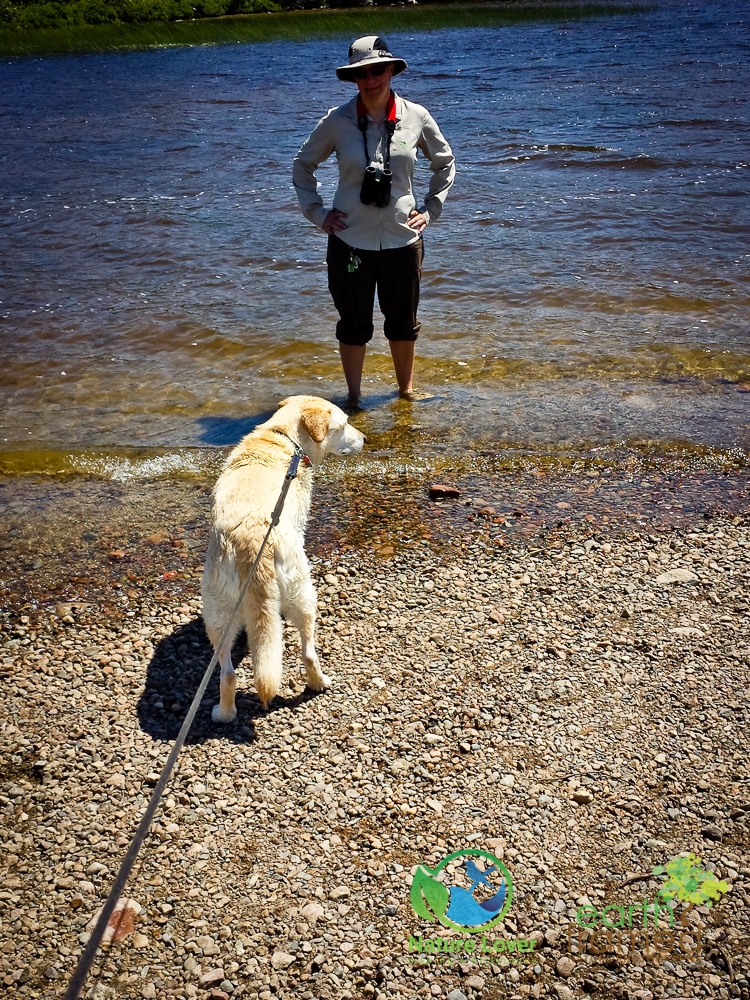
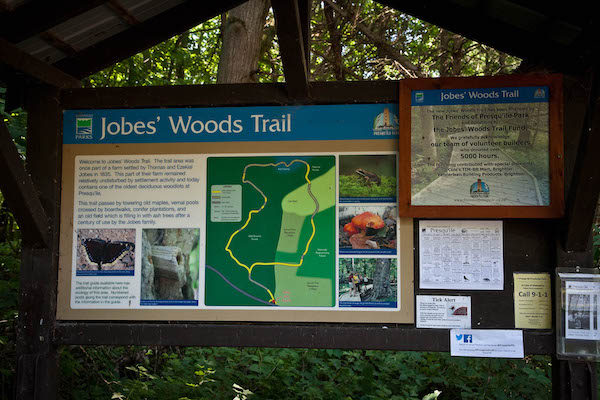
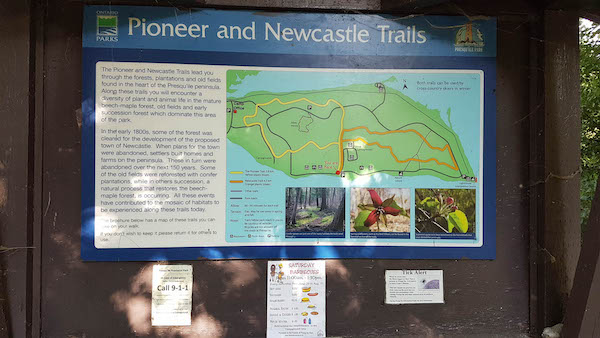
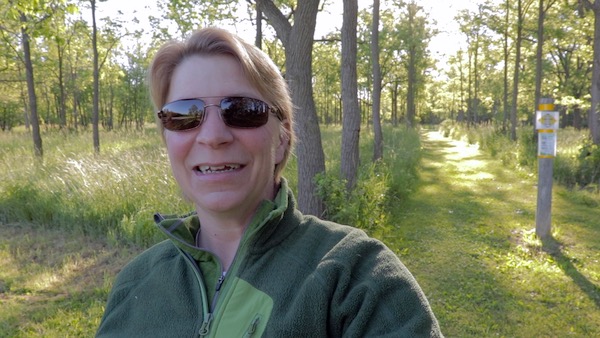
Comments(2)
G Allan says:
April 14, 2019 at 11:58 amHello– The photo of the Birch branch on the ground, the holes are made by a Yellow Bellied Sapsucker. The parent parks the young on one tree for the summer, leaving these rows of holes, killing the tree.
Tricia McLellan-Dath says:
April 16, 2019 at 4:49 pmThanks G Allan!! I didn’t know that at the time but I appreciate letting me know that! Still so much to learn. Thanks for checking out our site.